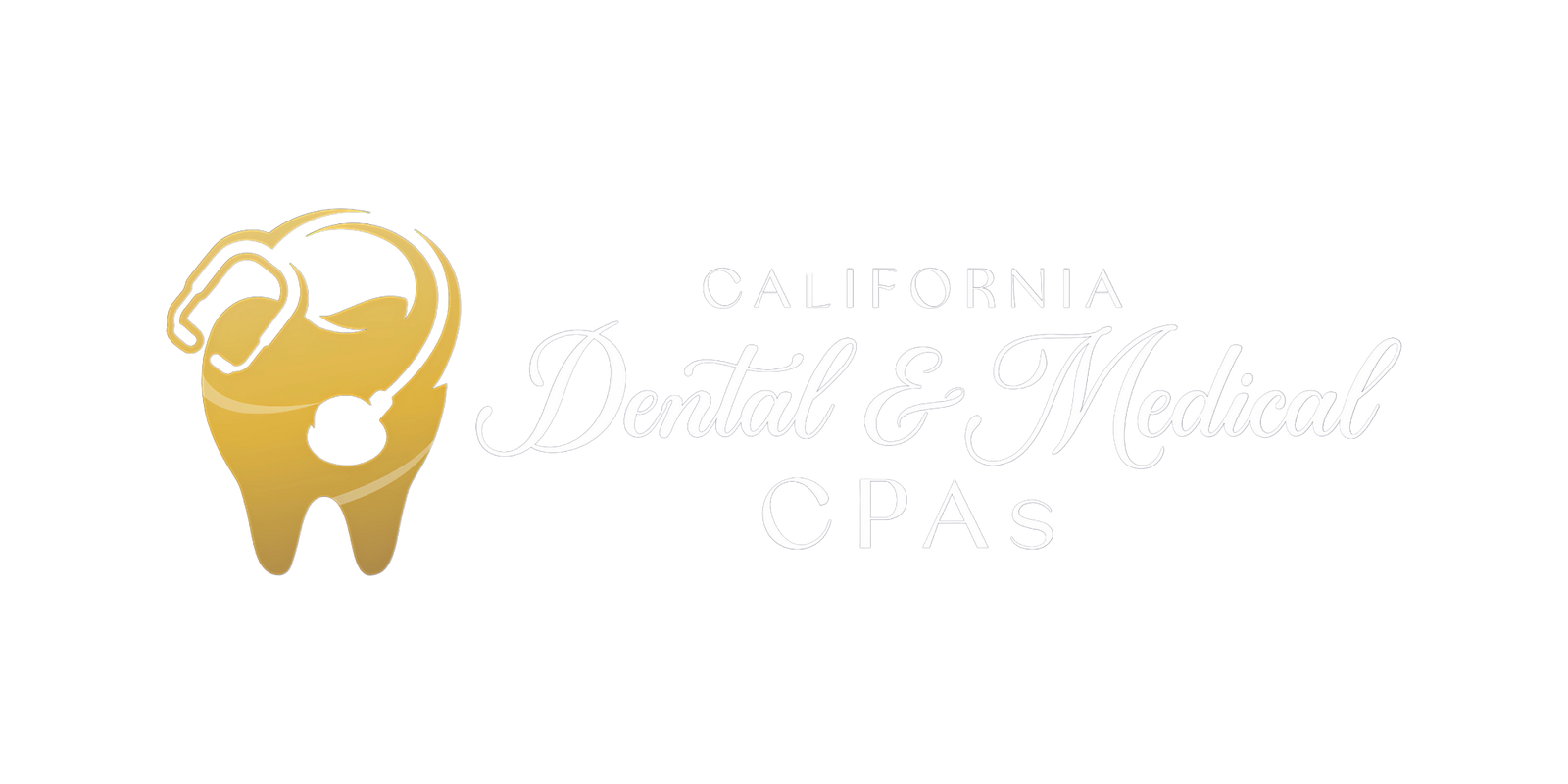In the fast-paced world of dentistry, keeping your financial records in check is not just a good practice—it’s essential. Bookkeeping for dental practices is a crucial part of running a successful clinic. It can help you avoid mistakes that could cost you time and money. This article explores the importance of mastering bookkeeping in California’s dental market and offers practical tips to ensure your practice thrives.
Key Takeaways
- Accurate bookkeeping helps prevent financial losses and regulatory issues.
- Proper financial management is key to standing out in California’s competitive dental scene.
- Regular reconciliation and tracking of finances lead to better decision-making.
- Using the right accounting software can simplify your bookkeeping tasks.
- Outsourcing bookkeeping can save time and improve accuracy, allowing you to focus on patient care.
Why Mastering Dental Bookkeeping in CA is Crucial: Avoiding Costly Mistakes

The Risks of Inaccurate Books: Financial Losses and Regulatory Penalties
Running a dental practice in California is tough, and getting your bookkeeping wrong can lead to some serious problems. We’re talking about more than just a few accounting errors. Inaccurate books can mean financial losses due to missed revenue, overpaid expenses, or just plain bad financial decisions. Plus, California has strict regulations for healthcare businesses, and if your books aren’t up to par, you could face penalties and fines. It’s like a domino effect – one mistake can trigger a whole cascade of issues.
- Missed tax deductions.
- Overpayment of taxes.
- Audits and legal fees.
Navigating Complex Finances in California’s Competitive Dental Market
California’s dental market is super competitive, and that means your finances are probably more complex than you think. You’ve got insurance reimbursements, patient payments, equipment leases, and payroll to juggle. If you don’t have a handle on your dental accounting, you’re basically flying blind. Good bookkeeping helps you see where your money is going, so you can make smart choices about investments, pricing, and growth. It’s about staying ahead of the game in a market that’s always changing.
How Poor Bookkeeping Hinders Practice Growth and Strategic Planning
Think of your bookkeeping as the foundation for your practice’s growth. If it’s shaky, everything else is going to suffer. Poor bookkeeping makes it hard to plan for the future because you don’t have a clear picture of your current financial situation. Can you afford to hire another hygienist? Should you invest in new equipment? Are you on track to meet your financial goals? Without accurate dental bookkeeping services, you’re just guessing, and that’s not a recipe for success. It’s about having the data you need to make informed decisions and grow your practice strategically.
Foundational Bookkeeping Practices for Dental Offices in CA
Setting Up Your Dental Practice Chart of Accounts Correctly
Setting up a chart of accounts is the first step to financial clarity. It’s like creating the skeleton of your financial records. Without a well-structured chart, tracking income and expenses becomes a nightmare. Think of it as organizing your closet – you wouldn’t just throw everything in, would you? You’d categorize by type, season, etc. Similarly, your chart of accounts needs categories specific to your dental practice, such as "Patient Revenue," "Dental Supplies Expense," and "Rent."
Here’s a simple breakdown:
- Assets: What your practice owns (cash, equipment, accounts receivable).
- Liabilities: What your practice owes (loans, accounts payable).
- Equity: The owner’s stake in the practice.
- Revenue: Income from dental services.
- Expenses: Costs incurred to run the practice (salaries, rent, supplies).
A well-designed chart of accounts allows you to generate accurate financial statements, which are essential for making informed business decisions. It also simplifies tax preparation and helps you identify areas where you can improve profitability.
Meticulously Tracking Every Dollar: Income, Expenses, and Payroll
Tracking every dollar might sound tedious, but it’s the backbone of sound financial management. It’s not enough to just know you’re making money; you need to know where it’s coming from and where it’s going. This includes everything from patient payments to supply costs and employee wages. Think of it like this: you wouldn’t run a marathon without tracking your pace and distance, right? Similarly, you can’t run a successful dental practice without tracking your finances.
Here are some tips:
- Use accounting software to record all transactions.
- Reconcile your bank statements monthly.
- Keep detailed records of all income and expenses.
For example, let’s say you notice a spike in supply costs. By tracking every dollar, you can investigate and find out if it’s due to increased patient volume, price increases, or perhaps even waste. This level of detail allows you to make informed decisions and control costs.
The Critical Importance of Regular Financial Reconciliation
Financial reconciliation is like balancing your checkbook – but on a much larger scale. It involves comparing your internal financial records with external sources, such as bank statements and credit card statements, to ensure everything matches up. This process helps you catch errors, identify fraud, and ensure the accuracy of your financial data. Think of it as a safety net for your finances.
Here’s why it’s so important:
- Detects errors: Catches mistakes in data entry or calculations.
- Identifies fraud: Uncovers unauthorized transactions.
- Ensures accuracy: Provides confidence in your financial data.
Regular reconciliation is a must. Aim to reconcile your accounts at least monthly. This will help you stay on top of your finances and prevent small errors from snowballing into larger problems. If you’re a 1099 dentist, this is especially important to avoid costly IRS mistakes.
Choosing and Effectively Utilizing Accounting Software (like QuickBooks)
Accounting software is a game-changer for dental practices. It automates many of the manual tasks associated with bookkeeping, saving you time and reducing the risk of errors. QuickBooks is a popular choice, but there are other options available, such as Xero and Sage. The key is to choose software that meets the specific needs of your practice.
Here’s what to look for:
- Ease of use: The software should be intuitive and easy to learn.
- Dental-specific features: Look for features like patient billing, insurance claim tracking, and appointment scheduling integration.
- Reporting capabilities: The software should generate reports that provide insights into your practice’s financial performance.
Once you’ve chosen your software, take the time to learn how to use it effectively. Many software providers offer training and support resources. You might even consider hiring a CA Dental & Medical CPA to help you get started. Implementing internal controls in dental practices is easier with the right software, as it can automate tasks like segregation of duties and approval workflows. Also, remember that setting up chart of accounts for dental practices is often easier with accounting software. This will help you streamline your financial processes and make better business decisions.
Key Areas to “Master” to Avoid Common Dental Bookkeeping Mistakes

Optimizing Dental Practice Cash Flow Management
Cash flow is the lifeblood of any dental practice. Effective management ensures you can meet your financial obligations and invest in growth. Here’s how to optimize it:
- Implement a system for tracking receivables: Know when payments are due and follow up promptly on overdue accounts.
- Negotiate favorable payment terms with suppliers: Stretching out payment deadlines can free up cash.
- Monitor your cash flow regularly: Use tools like cash flow statements to identify potential shortfalls early.
Poor cash flow management can lead to missed opportunities and financial strain. By actively monitoring and managing your cash flow, you can ensure your practice remains financially healthy.
Implementing Strong Internal Controls to Safeguard Against Fraud and Errors
Internal controls are policies and procedures designed to protect your practice’s assets. Preventing bookkeeping errors in dental offices requires a multi-faceted approach:
- Segregation of duties: Don’t let one person handle all aspects of a financial transaction. Separate responsibilities for authorization, record-keeping, and reconciliation.
- Regular audits: Conduct internal audits to identify weaknesses in your controls.
- Employee training: Ensure all staff members understand their roles in maintaining financial integrity.
Navigating Dental-Specific Tax Considerations and Maximizing Deductions
The tax landscape for dental practices can be complex. Understanding dental-specific tax rules is key to maximizing deductions and minimizing your tax liability. Here are some areas to focus on:
- Depreciation: Understand how to depreciate assets like dental equipment and software.
- Business expenses: Know what expenses are deductible, such as continuing education, deducting dental expenses, and professional dues.
- Retirement plans: Explore different retirement plan options to save for the future while reducing your current tax bill. Consider the limitations on excess business losses for noncorporate taxpayers.
Strategies for improving dental practice cash flow also include careful tax planning. By working with a qualified tax professional, you can develop a tax strategy that aligns with your practice’s financial goals. Remember that effective bookkeeping is crucial for medical practices to ensure financial health.
Turning Bookkeeping Data into Strategic Practice Growth in CA

Understanding Your Practice’s Financial Health Through Key Performance Indicators (KPIs)
Bookkeeping isn’t just about recording numbers; it’s about understanding what those numbers mean for your dental practice. By tracking and analyzing Key Performance Indicators (KPIs), you can gain insights into your practice’s strengths and weaknesses. This data-driven approach allows you to make informed decisions that drive growth and improve profitability.
Here are some KPIs to consider:
- Patient acquisition cost: How much does it cost to bring in a new patient?
- Revenue per patient: How much revenue are you generating from each patient?
- Overhead percentage: What percentage of your revenue is going towards overhead expenses?
- Collection rate: What percentage of your billings are you actually collecting?
By monitoring these KPIs regularly, you can identify trends, spot potential problems, and make adjustments to your business strategy. For example, if you notice that your patient acquisition cost is increasing, you might need to re-evaluate your marketing efforts. Or, if your collection rate is declining, you might need to improve your billing and collection processes. Understanding your practice’s financial health is the first step toward strategic growth.
The Professional Advantage: Why Outsourcing Dental Bookkeeping in California Makes Sense

Gaining Specialized Expertise and Reclaiming Valuable Time for Patient Care
Running a dental practice in California demands your full attention. Outsourcing your bookkeeping can free you up to focus on what matters most: your patients. CA Dental & Medical CPA offers specialized services tailored to the dental industry, ensuring accuracy and compliance. This allows you to concentrate on providing excellent dental care.
- Access to Experts: Get help from professionals who understand dental-specific finances.
- Time Savings: Reclaim hours spent on bookkeeping tasks.
- Reduced Stress: Eliminate the burden of managing complex financial details.
Outsourcing bookkeeping isn’t just about saving time; it’s about gaining a strategic advantage by entrusting your finances to experts who can help you make informed decisions and grow your practice.
Outsourcing your dental bookkeeping in California can really help your practice thrive. By letting experts handle your finances, you can focus more on your patients and less on paperwork. This not only saves you time but also helps you avoid costly mistakes. If you want to learn more about how we can help your dental practice succeed, visit our website today!
Wrapping It Up: Smart Bookkeeping for Your Dental Practice
In summary, getting your bookkeeping right is a game changer for dental practices in California. By sticking to solid practices like keeping accurate records, regularly reviewing your finances, and using the right tools, you can steer clear of costly mistakes. Remember, it’s not just about crunching numbers; it’s about understanding your practice’s financial health. This knowledge helps you make better decisions, whether it’s about investing in new technology or managing your cash flow. So, take the time to set up a strong bookkeeping system. It’ll pay off in the long run, helping your practice thrive in a competitive landscape.
Frequently Asked Questions
Why is bookkeeping important for dental practices in California?
Bookkeeping helps dental practices keep track of their money, understand their financial health, and avoid mistakes that can lead to losing money or facing legal issues.
What are common bookkeeping mistakes dentists make?
Common mistakes include not tracking expenses accurately, failing to reconcile accounts regularly, and not using the right accounting software.
How can I set up my dental practice’s chart of accounts?
Create categories that fit your practice, like ‘Patient Revenue’ and ‘Expenses,’ and break those down into more specific subcategories for better tracking.
What software is best for dental bookkeeping?
Many dental practices use software like QuickBooks, which has features designed for managing patient billing and insurance claims.
How often should I review my financial records?
You should review your financial records regularly, ideally monthly, to catch any errors early and ensure everything is accurate.
What is cash flow management and why is it important?
Cash flow management is tracking how money comes in and goes out of your practice. It’s crucial for ensuring you have enough money to cover expenses.
What are some tax considerations specific to dental practices?
Dental practices can often deduct expenses like equipment costs, staff salaries, and office supplies, but it’s important to stay updated on tax laws.
Should I consider outsourcing my bookkeeping?
Yes, outsourcing can save you time and ensure that your bookkeeping is done correctly by experts, allowing you to focus more on patient care.






